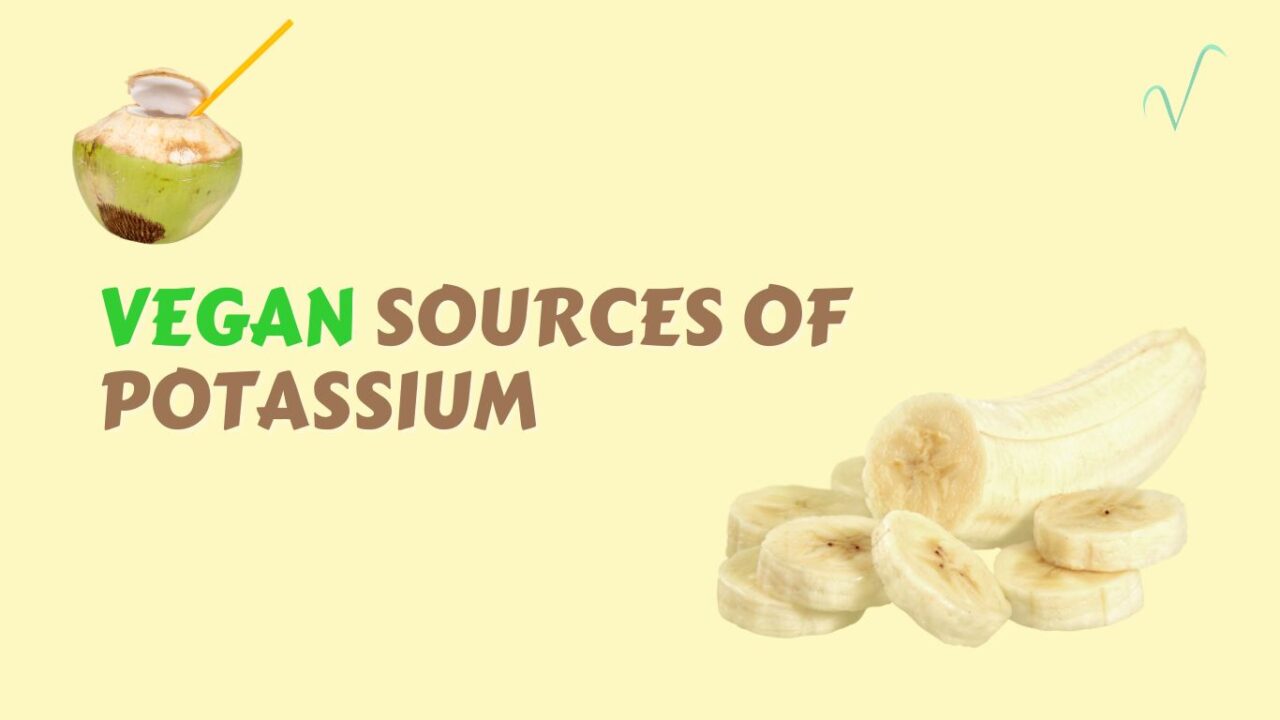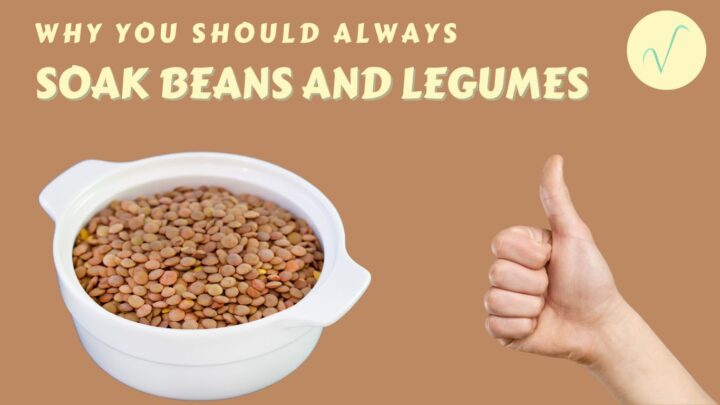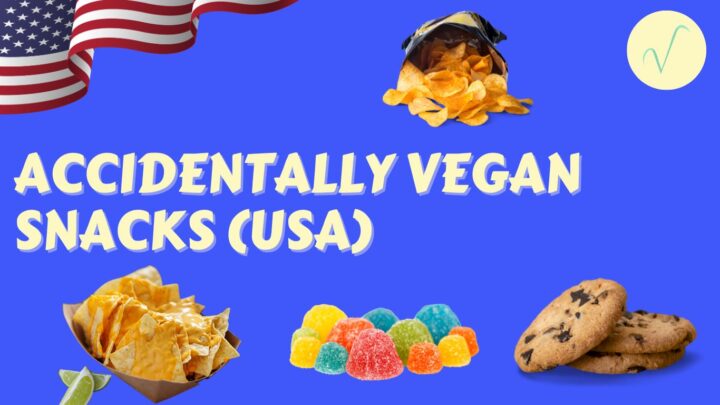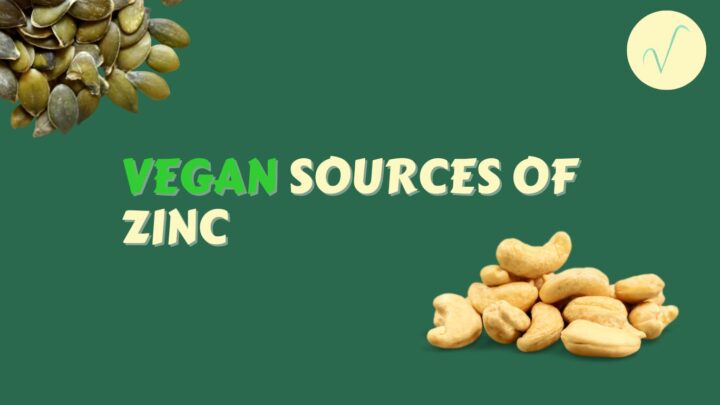Some may know it as a metal, an element, and gym-junkies know it as one of the most important electrolytes.
All in all, potassium is incredibly important for the human body. The mineral is also abundant in plant-based foods, and it’s a common nutrient deficiency among those who primarily based their diet around meat.
Good thing is, by incorporating a few of these potassium rich foods in your diet, vegan or not, you’ll be well on your way to ensuring your intake is at adequate levels.
Here are some potassium rich vegan foods to add to your shopping list.
Potatoes
The baked potato is often overlooked as a source of nutrition. Mainly due to the fact that most of it lies within the skin, in which many remove when they consume fries, mash potatoes, hash browns, etc.

But the skin lies all the nutrition, the vitamin C, the copper and the potassium.
You can expect to receive 46% of your day’s potassium in merely one large baked potato! Who said jacket potato was dead eh?
White beans
If you’re from the UK you’ve most likely tried white beans in the form of classic baked beans. Again, another food commonly overlooked for its nutrition.

Of course, canned baked beans don’t measure to white beans dried, soaked and cooked from scratch, so these are the type of white beans we’re talking about.
1 cup of cooked white, otherwise known as navy beans, provides you with 29% of your daily recommended potassium.
Oranges
One of my favourite citrus fruits, rich in vitamin C, calcium and other micronutrients.

Often consumed in the form of concentrated juices in which the nutrition is compromised, you’re better off eating your oranges straight from the peel.
1 large orange provides you with 10% of your daily potassium, an ideal post-workout snack.
Bananas
We couldn’t create a list of potassium-rich foods without at least including the fruit well-known for being a source of potassium.
But did you know that bananas aren’t the richest potassium source? Although it does contain potassium content I like to think of it as a better vega source of B-vitamins, such as b-6.

However, this is a post on vegan potassium sources. Bananas still provide a decent amount of potassium, with 14% of your daily recommended amount in one large fruit.
Avocado
A well-known vegan superfood, avocados are rich in an array of nutrients, from folate to vitamin K.
Not to mention it’s one of the best healthy vegan fat sources out there.

When it comes to potassium, it just takes one avocado to provide 28% of your daily needs.
Coconut water
If you’ve been to a hot country, you’ve likely tried refreshing coconut water at least once in your life to help cool yourself down.
It’s seen in the UK as merely an overpriced beverage, but there’s a reason for that.

According to the vita coco brand, accessible in the UK, 240 ml of coconut water amounts to 13% of your daily recommended potassium.
If you haven’t tried using coconut water for a heavy workout, I highly recommend it. It’s a game changer.
Butternut squash
Butternut squash is a lovely sweet vegetable often consumed in the winter. Serves as a great base for soups, on the side of salads and boasts an array of nutrients.

One cup of baked butternut squash cubes is equivalent to 17% of your daily recommended potassium.
Lentils
I love lentils so much, one of the best things about them is that you will see them in a lot of vegan nutritional posts. Simply due to the powerhouse of nourishment that’s packed in these little legumes.

As well as being rich in iron, folate, zinc and other nutrients, you can resort to a cup of cooked lentils for 21% of your required potassium.
Blackbeans
Another classic well-known bean used in many cuisines, ranging from Asian culture to the South Americas.

A great food to eat paired with quinoa, brown rice, or even in a blackbean salad. 1 cup of cooked black beans is equivalent to 17% of your required potassium.
Why do we need potassium?
Potassium is incredibly important for the body and many of its general purposes. It helps to regulate fluid balance and muscle contractions, as well as other bodily processes.
Considering its role in fluid balance, adequate consumption of potassium can assist in the potential prevention of stroke, may help to reduce high blood pressure (which can lead to stroke).

Potassium is also especially important for athletes. Considering the demanding lifestyle of an athlete and consistent sweating out of electrolytes; athletes want to make sure that they’re replenishing these vital nutrients, as they help you to work at your most efficient.
What are signs of low potassium intake?
Signs of low potassium range from small symptoms to slightly more concerning ones, some listed below:
- General feeling of weakness
- Muscle cramping (which is why they recommend bananas for cramps)
- Muscle twitching
- Inconsistent heartbeat (as a result of high blood pressure)
What affects the absorption of potassium in the body?
Not very many things affect the absorption of this electrolyte, with the exception of a few lifestyle choices which may affect the efficiency of your uptake of it.

These include habitual caffeine and tobacco consumers, with caffeine working as a diuretic, which could lead to excess removal of potassium in the urine.
Vegan potassium sources
Those are a list of potassium-rich foods you can incorporate into your diet today.




